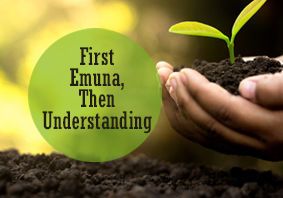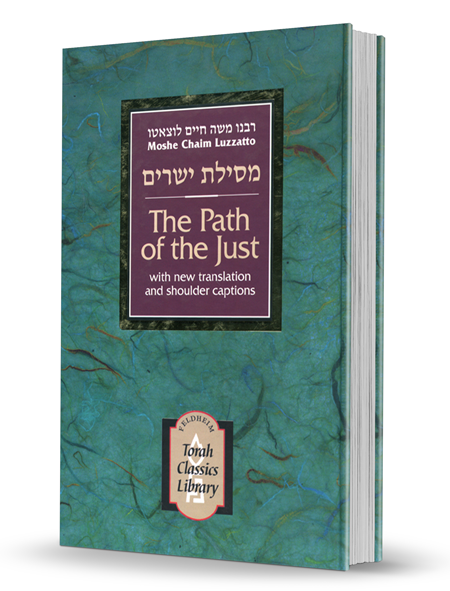
First Emuna, Then Understanding
When a situation looks completely despondent from a logical perspective, emuna will enable you not only to cope, but attain tremendous personal growth as well…

Translated by Rabbi Lazer Brody
There will always be a limit to the extent we can understand Hashem’s actions. But where understanding leaves off, emuna must begin. Someone who thinks or hopes to understand Hashem will not attain emuna.
Not even Moses could understand Hashem. When Moses asked Hashem to show him the secret of how He works, Hashem answered him, “You cannot see My Face.” In other words, you can never understand how I work on an a priori basis. You’ll only be able to understand what I do in retrospect. This is the intrinsic meaning of what Hashem says, “You can see Me from the back, but My face cannot be seen” (Exodus, 33:23).
Never forget that at the time of a test, a person cannot really know or understand that all is for the good! If he understood clearly that it is really good, it would not be a test. Every test of emuna occurs only when a person’s intellect perceives a situation as bad. The level of knowing from the outset that everything is  good is one that no human can attain, because understanding the situation with such clarity nullifies free choice.
good is one that no human can attain, because understanding the situation with such clarity nullifies free choice.
Therefore, it doesn’t matter who a person is – it can be a simple shoe shiner or our forefather Jacob – no one in this world with constant and ongoing tests of faith can know from the outset that everything is for the good. Even if the person is a Moses or a Rabbi Akiva! For every person, a trying situation appears to be bad at the time of the challenge. We cope by strengthening our emuna – even without understanding – that it’s all for the good.
During a difficult challenge, don’t try to understand what’s happening to you, for you won’t draw strength and encouragement, only frustration. When a situation looks completely despondent from a logical perspective, emuna will enable you not only to cope, but attain tremendous personal growth as well.
Look at our forefather Jacob. Was his life easy from a logical standpoint? Was arriving bereft of any worldly possessions to the house of Laban a good thing? What could be the advantage of having swindler Laban for a father-in-law? According to intellect, there would seem to be no apparent good in Jacob’s situation.
Through eyes of emuna, however, everything is good! We don’t necessarily understand how it’s all for the good, but we believe that it’s all good.
Don’t think that great prophets and tzaddikim on higher spiritual levels have an easy time coping with their tribulations. They suffer excruciating tests of faith in accordance to their lofty spiritual level; they also cannot see that their suffering is beneficial. Indeed, with their mighty intellect, it would seem that all is NOT good! But they have the emuna that everything is for the very best.
Sometimes a person tries to convince himself that the tribulation at hand is all for the good. But then his wife, parents or neighbors convince him in unison that his ideas are skewed. With a lack of genuine and steadfast emuna, he loses resolve, becomes confused, and begins to question everything.
A person must first understand that he will not be able to see from the outset how his tribulations are good – otherwise they wouldn’t be tribulations. For example, an Olympic boxer understands that he’ll be hit during training; he doesn’t complain when the coach catches him off guard and punches him, since he knows this is part of becoming a champion. But if a person walking down the street gets punched for no apparent reason, he won’t be able to know how and why this is for his ultimate benefit. That’s where total emuna enters the picture.
Complete emuna in Hashem means that we believe – without any doubt – that He directs and observes each of us individually with exacting precision, and He sees what we don’t see. In short, complete emuna gives us the peace of mind that Hashem is doing everything for our ultimate good, regardless of the fact that this is not revealed to us at the time.
Therefore, a person should tell himself “I understand that my suffering is seemingly very bad. I even feel tremendous pain. My tribulations seem unbearable, but I believe that they’re all for the best, despite the fact that I don’t see how…”
Once we believe that they’re for the best, and we thank Hashem for them, they truly become the most beneficial assets in our lives. Just thank Hashem and see for yourself.









Tell us what you think!
Thank you for your comment!
It will be published after approval by the Editor.